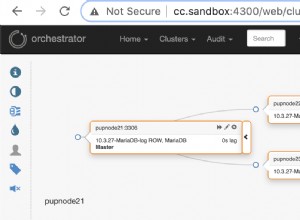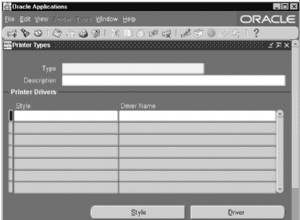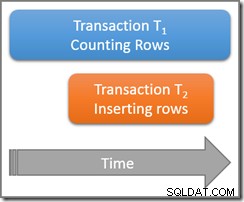Me encontré con este problema yo mismo, y así es como lo abordé. Creé una función auxiliar que itera sobre la matriz y usa el operador ->> usando un subíndice para recuperar el valor del texto. Si alguien sabe una mejor manera, me alegra saberlo, porque esto parece un poco torpe.
CREATE OR REPLACE FUNCTION json_text_array_to_pg_text_array(data json) returns text[] AS $$
DECLARE
i integer;
agg text[];
BEGIN
FOR i IN 0..json_array_length(data)-1 LOOP
agg := array_append(agg, data->>i);
END LOOP;
return agg;
END
$$ language plpgsql;
Entonces puedes hacer cosas como:
test=# select json_text_array_to_pg_text_array('[ "hello","the\"re","i''m", "an", "array" ]'::json);
json_text_array_to_pg_text_array
----------------------------------
{hello,"the\"re",i'm,an,array}
(1 row)
También puede hacer que la función solo devuelva un conjunto de texto si no quiere tratar directamente con las matrices:
CREATE OR REPLACE FUNCTION json_text_array_to_row(data json) returns setof text AS $$
DECLARE
i integer;
BEGIN
FOR i IN 0..json_array_length(data)-1 LOOP
return next data->>i;
END LOOP;
return;
END
$$ language plpgsql;
Y luego haz esto:
test=# select json_text_array_to_row('{"single_comment": "Fred said \"Hi.\"" ,"comments_array": ["Fred said \"Hi.\"", "Fred said \"Hi.\"", "Fred said \"Hi.\""]}'::json->'comments_array');
json_text_array_to_row
------------------------
Fred said "Hi."
Fred said "Hi."
Fred said "Hi."
(3 rows)




